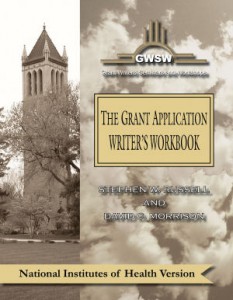We have earlier posted a number of blogs regarding extremely important recent changes at the NIH concerning the preparation of grant proposals to the NIH (March 13, March 18, April 4, October 28, and January 4). These enacted changes have been designed specifically to call to attention the need for more detailed consideration of the underlying SCIENTIFIC PREMISE of the proposed research and greater attention to exactly what PRACTICES applicants undertake in either the laboratory or the clinic to achieve reproducible results. In keeping with this renewed focus on reproducibly, the NIH last September enacted a change in policy affecting all applicants submitting grant applications describing proposed randomized clinical trials. This proposed policy change has become effective as of January 1, 2017 (Policy on Good Clinical Practice Training for NIH Awardees Involved in NIH-funded Clinical Trials; Notice Number: NOT-OD-16-148) and clinical investigators would do well to become familiar with it.
As mandated by this new policy, there is now: “…the expectation that all NIH-funded investigators and staff who are involved in the conduct, oversight, or management of clinical trials should be trained in Good Clinical Practice (GCP), consistent with principles of the International Conference on Harmonisation (ICH) E6 (R2). The principles of GCP help assure the safety, integrity, and quality of clinical trials. GCP provides a standard for ensuring clinical trial compliance, implementation, data collection, monitoring, and reporting (e.g., safety data, accrual reports, study status, protocol deviations, unanticipated problems, or final data), and outline the responsibilities of Institutional Review Boards (IRBs), investigators, sponsors and monitors. GCP addresses elements related to the design, conduct and reporting (e.g., safety data, accrual reports, study status, protocol deviations, unanticipated problems, or final data) of clinical trials.”
The primary purpose of the enactment of this policy is, of course, to help ensure the integrity of any clinical trial involving patients and that all studies are carried out with rigor and integrity. Ultimately, the consequences of such a policy in terms of expected outcomes is increased confidence in any reported results, which, in turn, will increase their reproducibly. In this respect, the NIH has earlier expressed considerable concerns, summarized in the NIH Nexus, June 9, 2015 stating that, “Evidence has shown that (results reported in) too many biomedical-research publications are irreproducible.” (Dr. Larry Tabak, Principal Deputy Director of the NIH).
Fortunately, compliance with this new policy is not overly cumbersome and most investigators should be able to meet the requirement without undue burden. The NIH indicates that “GCP training may be achieved through a class or course, academic training program, or certification from a recognized clinical research professional organization.” Many government organizations offer online courses designed to allow investigators to meet the requirement including several NIH courses (e.g., the NIAID GCP Learning Center, the National Drug Abuse Treatment Clinical Trials Network, and the FDA. As well, a number of free courses are offered online such as Free GCP Training offered by PharmaLessons.)
We trust that all clinical investigators involved in randomized clinical trials will pay heed to this new policy, in order to help ensure that no NIH application addressing such issues receives the dreaded “Returned Without Review” notification for lack of compliance to this important new policy.

